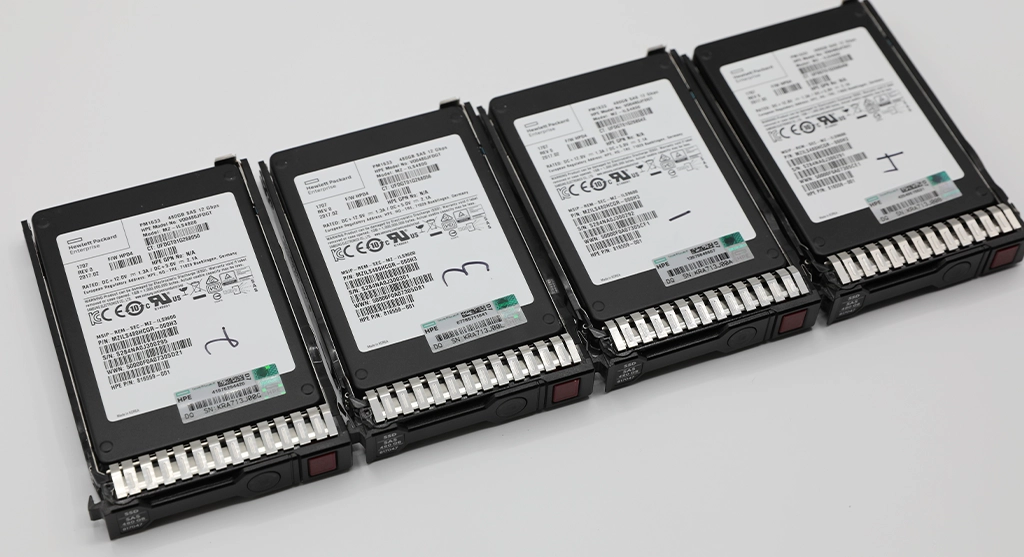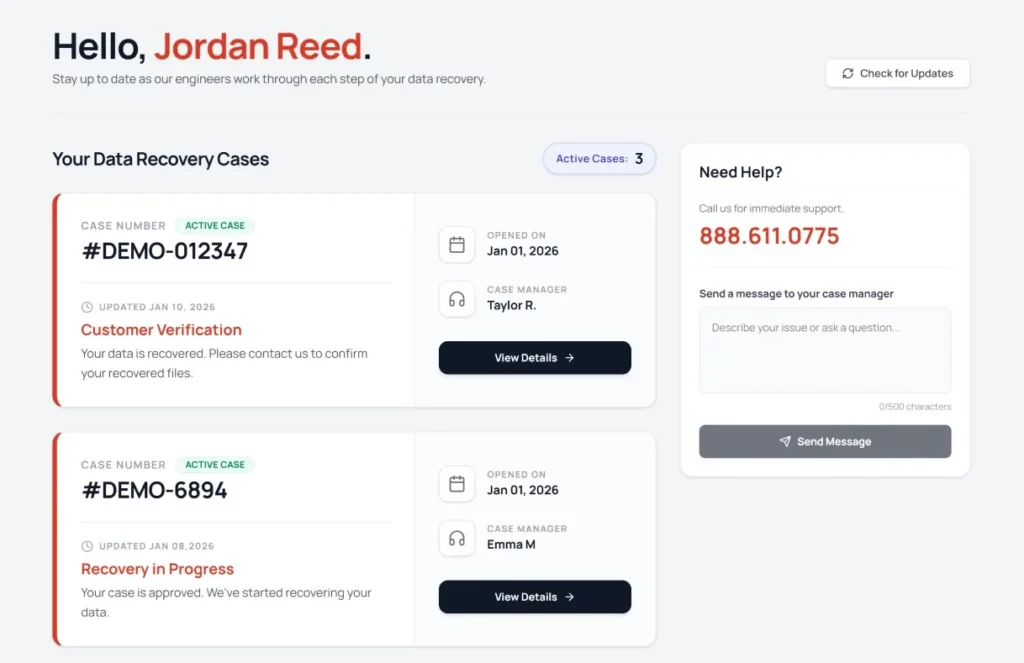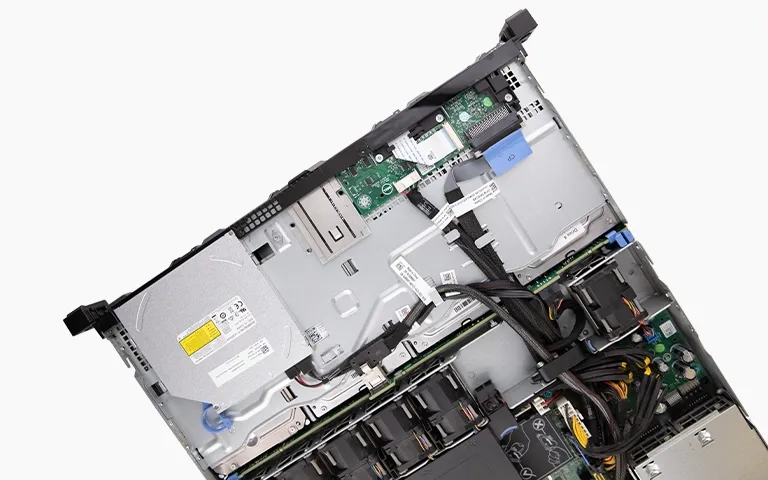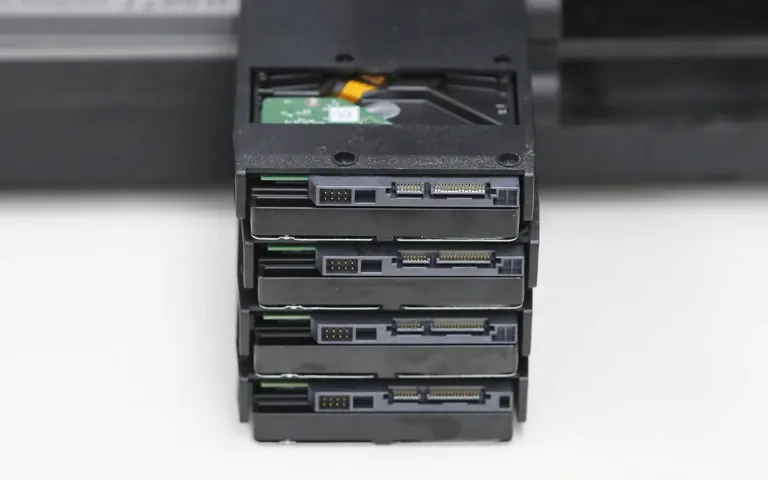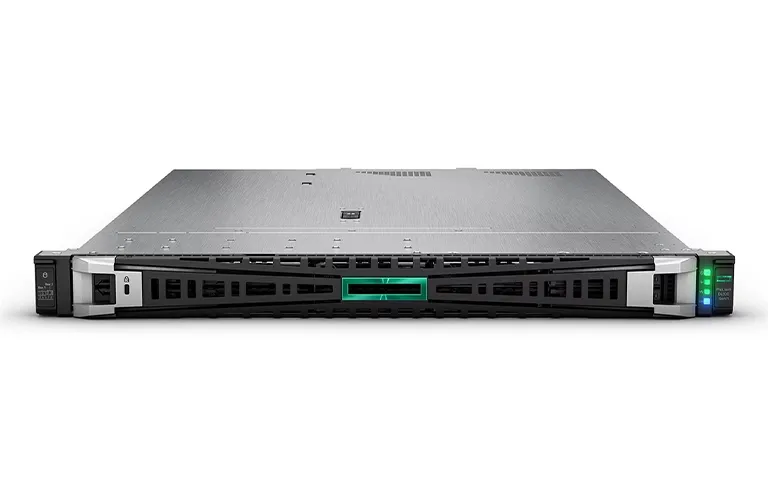RAID 0 File Recovery
Home users and certain small businesses mainly use RAID 0. Since it has no redundancy, it is often used for noncritical work applications, such as gaming and video editing. However, even though data loss is expected to happen to one of the drives in a RAID 0 setup at some point, there are still ways to recover lost files.
One of the first steps in RAID 0 file recovery is to stop using the array immediately and act quickly. Continuing to use the array or trying to rebuild it can lead to further data loss. It is important to contact a professional data recovery service as soon as possible.
RAID 0 Failure
RAID 0 fails for various reasons, including physical damage to the hard drives, logical failures in the array configuration, and human errors. Other factors, such as power outages and natural disasters, can also contribute to RAID 0 failure. For RAID 0 failure, a reliable backup system is crucial. However, if there is no backup available or if the backup system has failed as well, professional data recovery services can be your best option for retrieving lost data from a failed RAID 0 array.
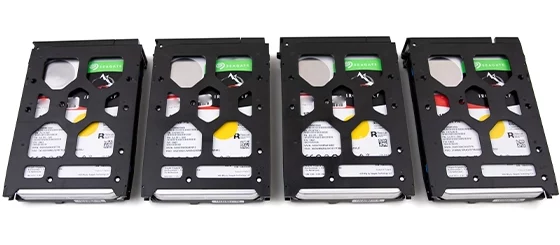
Hardware Failures in RAID 0
- Drive Failure in RAID 0
- Controller Failure in RAID 0
- Power Surges
- Overheating in RAID 0
- Wear and Tear
- Physical Damage to RAID 0 Drives
- Firmware Issues in RAID 0
- Faulty Cables and Connections
- Manufacturing Defects
- Environmental Factors Affecting RAID 0
- Electrical Interference
- Insufficient Power Supply
- Vibration Damage
- RAID 0 Controller Battery Failure
- Inadequate Ventilation
- Incompatible Hardware Components in RAID 0
- Electrostatic Discharge (ESD)
- RAID 0 Drive Firmware Incompatibility
- Corrupted RAID 0 Metadata
- Incorrect BIOS Settings
Human Errors in RAID 0
- Incorrect RAID 0 Configuration
- Improper Installation of RAID 0 Components
- Accidental Deletion of RAID 0 Data
- Mismanagement of RAID 0 Array Rebuilds
- Neglecting Regular Maintenance
- Incorrect BIOS Settings for RAID 0
- Mishandling RAID 0 Hardware
- Failing to Monitor RAID 0 Health
- Ignoring RAID 0 Error Alerts
- Inadequate Data Backup Practices
- Poor Cable Management
- Incorrect Drive Replacement in RAID 0
- Inaccurate RAID 0 Documentation
- Overlooking Firmware Updates
- Inconsistent RAID 0 Performance Testing
- Improper Shutdown Procedures
- Failing to Secure RAID 0 System from Malware
- Misconfiguration of RAID 0 Software Tools
- Inadequate Training on RAID 0 Management
- Ignoring Environmental Conditions for RAID 0 Hardware
Software Issues in RAID 0
- RAID 0 Configuration Errors
- Corrupted Metadata
- Software Conflicts in RAID Management Tools
- Improper Array Rebuilds
- Firmware Issues in RAID 0
- Corrupted Data Blocks
- RAID Controller Driver Problems
- Malware or Virus Attacks
- Software Glitches in RAID 0
- Incorrect BIOS Settings
- File System Corruption
- Management Software Bugs
- Incompatible Software Updates
- Human Error in Software Management
- Synchronization Failures
RAID 0 Disk Recovery
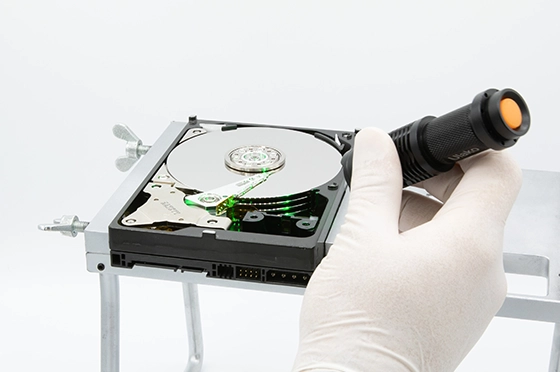
Server-based RAID 0 Recovery
We have successfully recovered data from various server-based RAID 0 configurations, including Dell, HP, IBM, and more.
Desktop-based RAID 0 Recovery
We have successfully recovered data from various server-based RAID 0 configurations, including Dell, HP, IBM, and more.
NAS/SAN RAID 0 Recovery
We also provide data recovery services for Network Attached Storage (NAS) and Storage Area Networks (SAN), which often use RAID 0 for better performance.
Laptop RAID 0 Recovery
Our team is skilled in recovering data from laptops with RAID 0 configurations, such as those using Solid-State Drives or Hybrid drives.
Related Data Recovery Services to RAID 0
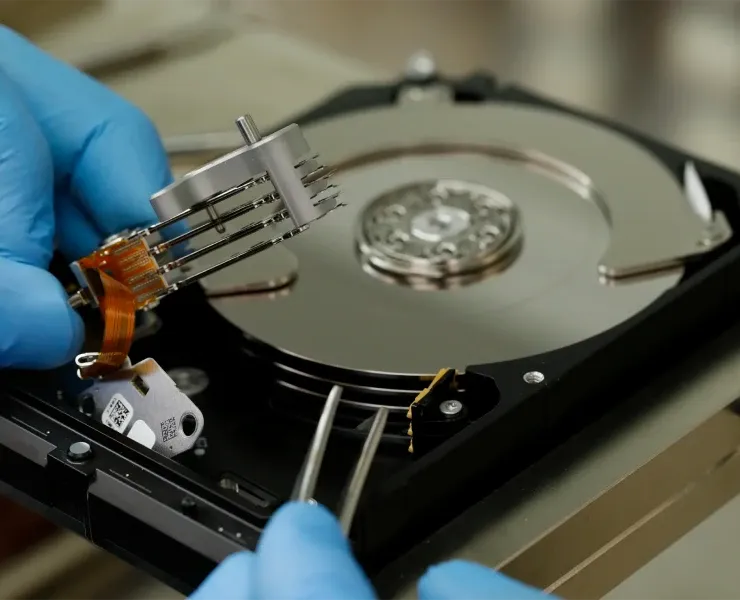
Hard Drive Recovery
Specialized recovery for HDDs affected by mechanical failure, logical errors, or physical damage. We utilize advanced tools to securely retrieve data from all makes and models.
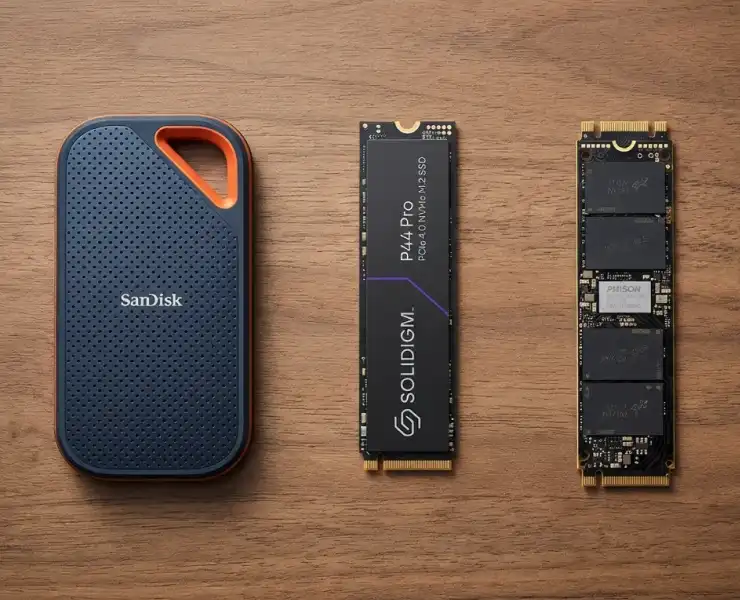
SSD Data Recovery
Expert recovery for physically damaged and corrupted Solid State Drives. We resolve complex controller and NAND flash failures to restore data from any make or model.
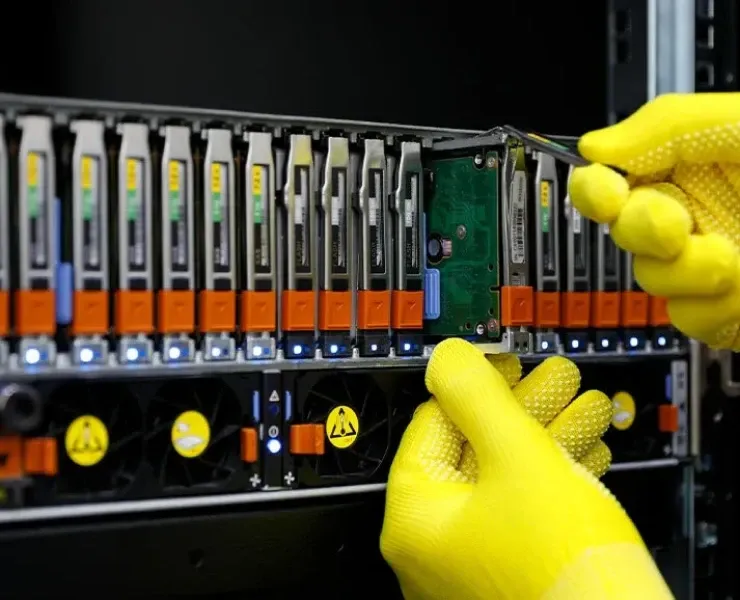
RAID Data Recovery
Enterprise-grade recovery for RAID systems facing multiple drive failures, parity loss, or degraded modes. We reconstruct failed arrays and file systems across all SAN, NAS, and virtualized environments.

Apple Data Recovery
Expert solutions for dead or liquid-damaged Apple computers. We resolve logic board failures to restore files from Apple Silicon (M-Series), T2 chips, and older Intel models.
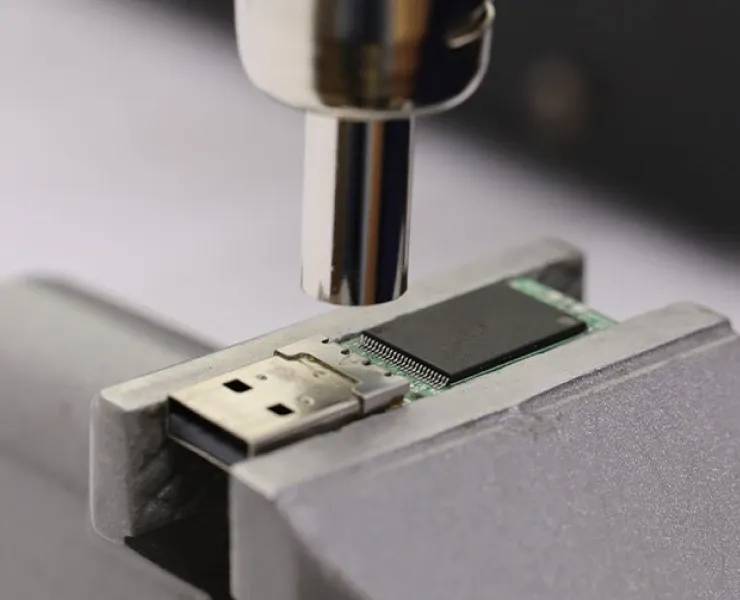
USB Flash Drive Data Recovery
Professional recovery for physically broken and corrupted USB drives. We repair damaged connectors and monolithic chips to retrieve data from any brand.
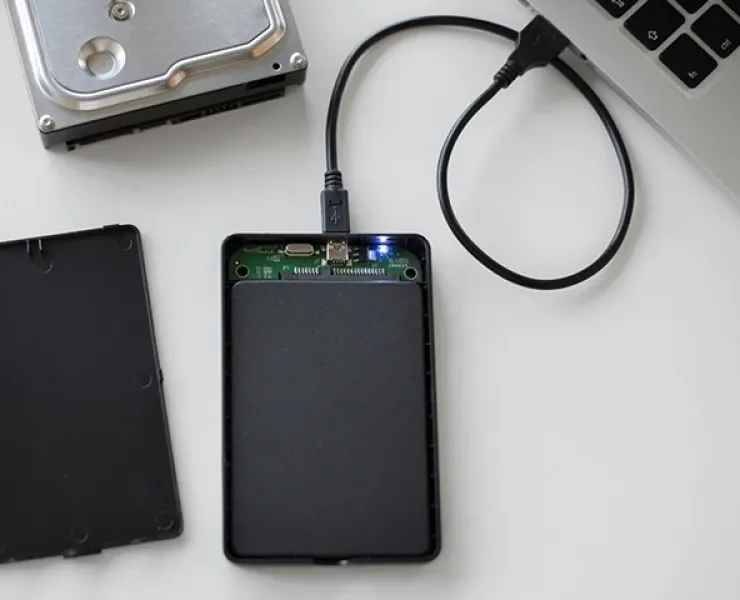
External Hard Drive Recovery
Recover files from clicking, beeping, or undetected external drives. We fix broken USB ports and internal failures to access data on all models.
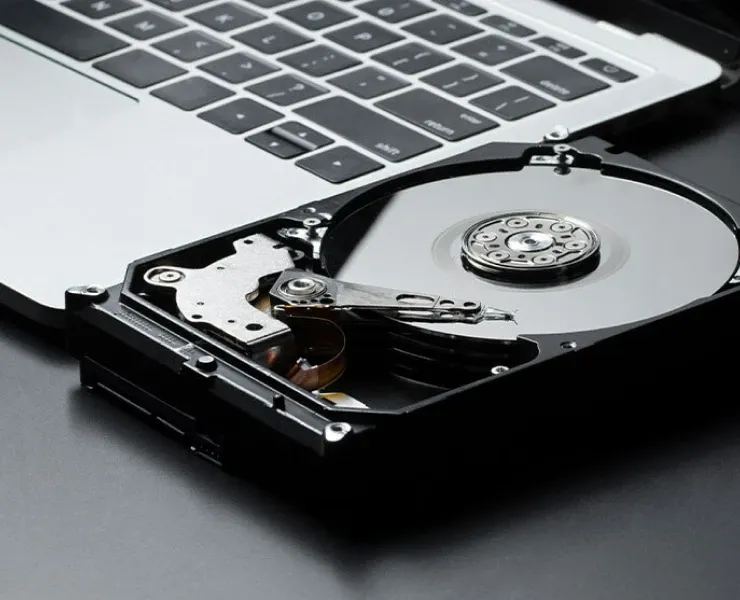
Laptop Data Recovery
Recovery services for unbootable and crashed laptops. We extract data from failing internal drives and encrypted systems across all major manufacturers.
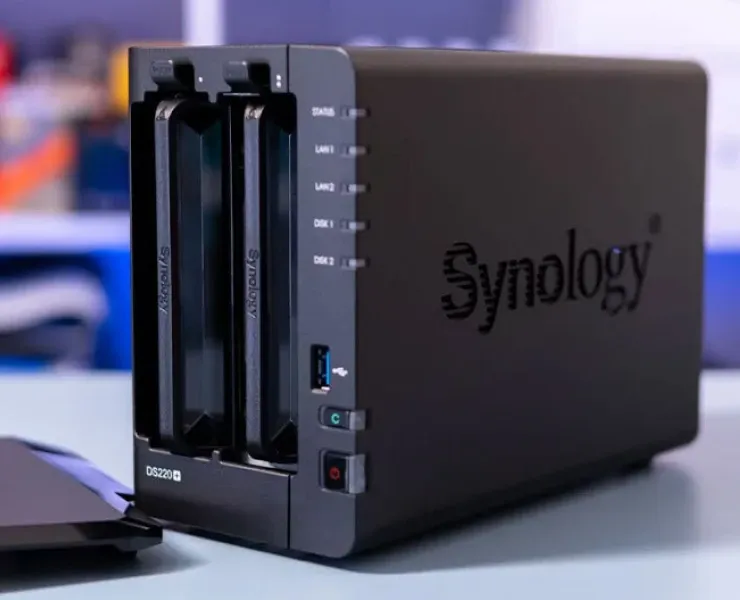
NAS Data Recovery
Advanced recovery for offline and degraded network storage. We reconstruct RAID arrays and file systems for all brands, including Synology, QNAP, and WD.
Comprehensive Recovery Solutions
We support data recovery across all major devices and storage systems, covering both standard and complex recovery scenarios.
